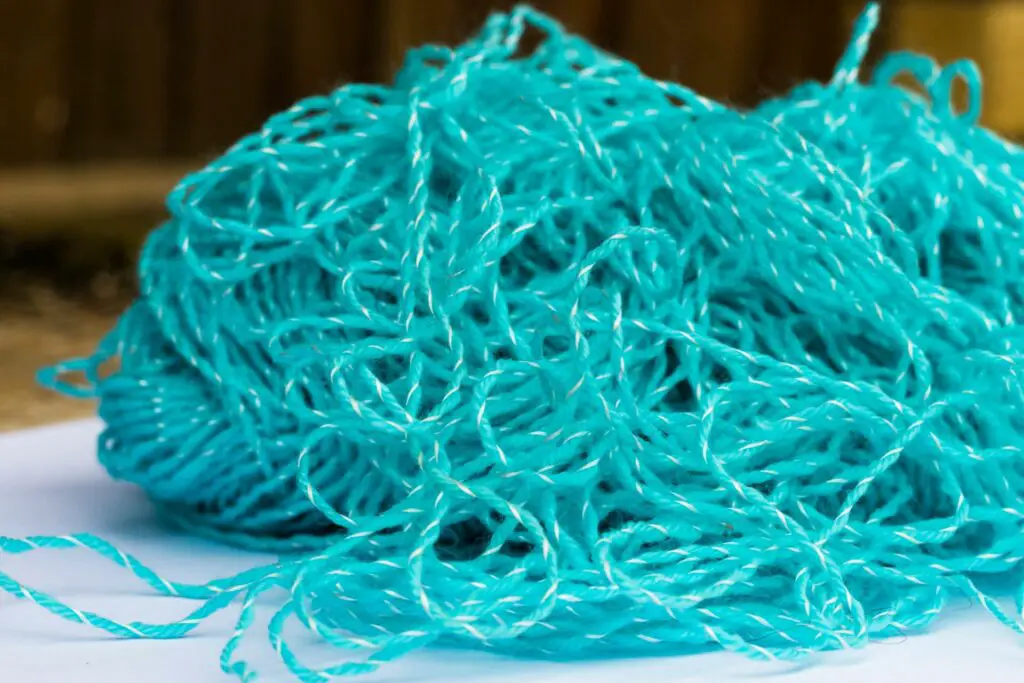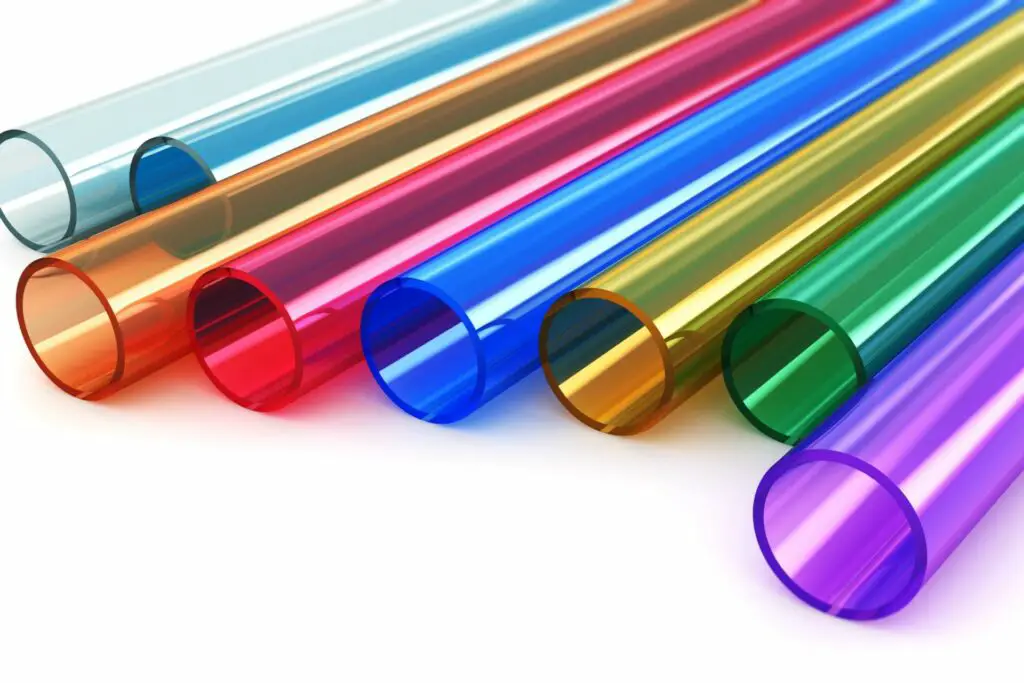Rubber gloves, also called latex gloves, have always been used in the medical field and laboratory facilities.
But, there has definitely been an increase in their use during the global pandemic, as more and more people have been wearing them to protect themselves from illness.
Unfortunately, rubber gloves are designed to be single-use, and they aren’t always disposed of correctly either, which leads those of us that are environmentally conscious to question whether they are eco-friendly.
To put it simply, rubber gloves that are made from natural rubber are more eco-friendly than those that are made from synthetic rubber (nitrile).
But, there are some downsides to all rubber gloves when it comes to the environment.
We’ll look at all of their environmental aspects in this article.
1. Are Rubber Gloves Bad for the Environment?
This is somewhat of a tricky question to answer because again, it depends on the type of rubber glove that you have.
Rubber gloves can be made out of either natural or synthetic rubber. Rubber gloves that are natural are made either entirely or almost entirely out of natural rubber.
Natural rubber is derived from latex, a substance that is produced by the rubber tree.
Collecting latex is pretty eco-friendly, as it doesn’t involve cutting down the tree in order to get it, and one tree can be used for around 28 years.
The problem with latex is that some people can be allergic to it. Using latex gloves in a setting such as the medical field where you have to touch people can be dangerous for those that do have a latex allergy.
Because of this, many rubber gloves are made of synthetic rubber instead and are called nitrile gloves or are mentioned as being latex-free. These gloves are made from crude oil and various other chemicals instead.
Although synthetic rubber is not quite as stretchy as natural rubber, it is still stretchy and had similar properties to natural rubber with the benefit of being latex-free.
Unfortunately, using crude oil to make synthetic rubber is not as eco-friendly as using natural rubber since crude oil is a non-renewable resource.
Collecting the crude oil and manufacturing synthetic rubber gloves contributes to habitat loss, pollution, and greenhouse gas emissions and involves the use of lots of chemicals.
That’s not to say that manufacturing natural rubber gloves doesn’t have any negative environmental effects.
But, there are far fewer chemicals used in processing natural rubber, and the process of making the rubber from latex as well as the gloves themselves is mostly mechanical.
The biggest downside of making natural rubber gloves is the amount of energy that is used, most of which comes from burning fossil fuels that are also non-renewable, and the burning of them contributes to greenhouse gas emissions and air pollution as well.
All-in-all, though, natural rubber gloves are significantly more eco-friendly than synthetic rubber gloves.
But unfortunately, using natural rubber gloves is not an option for some people so they have to use synthetic alternatives.
2. Are Rubber Gloves Biodegradable?
Gloves that are made from natural rubber (latex) are biodegradable, but gloves that are made from synthetic rubber are not.
Latex gloves can take around 5 years to decompose, however, it doesn’t mean that they will decompose that quickly – especially if they are disposed of incorrectly.
For example, a latex glove that finds its way into the forest and is buried under leaf litter would decompose a lot faster than a glove that is left lying in a parking lot for several years.
There would be more factors at work in the forest to help in the decomposition of the glove than in a parking lot somewhere.
And because of the pandemic, significantly more rubber gloves are ending up in the ocean.
Being in the ocean affects the rate of biodegradation as well and causes the gloves to take longer to decompose.
Assuming that rubber gloves are made from latex and not synthetic rubber, being biodegradable doesn’t mean that you should just toss your rubber gloves whenever you’re done with them, because they may not biodegrade quickly depending on where you toss them.
Don’t use the fact that they are biodegradable to justify not disposing of them properly.
3. Are Rubber Gloves Compostable?
Again assuming that the gloves are made from latex and not synthetic rubber, they are technically compostable.
However, that doesn’t mean that you should compost them in all situations.
In fact, rubber gloves are not recommended to be put into cold bin composting.
If you’re hot bin composting, you certainly can compost rubber gloves, but the rate of decomposition is still going to be slow.
The bottom line is that you should only compost rubber gloves if you don’t mind waiting a long time for them to fully break down.
4. Are Rubber Gloves Recyclable?
Rubber gloves are generally not recyclable, especially through curbside recycling programs.
Many of them are contaminated with chemicals or biohazardous waste, so they can’t go into a recycling stream without contaminating it as well.
However, Terracycle does have a program in which you can recycle disposable gloves made from many different materials, including latex, nitrile, and vinyl.
5. Are Rubber Gloves Reusable?
Some rubber gloves are reusable, while others aren’t. Most rubber gloves are designed to be disposable, especially since they are most often used in the medical field.
You can’t reuse these gloves if they come into contact with any biohazardous materials, such as blood, body fluids, etc., and they need to be disposed of properly as well to prevent contamination.
However, there are some gloves made from rubber than aren’t disposable, such as what you would use for gardening or cleaning – commonly known as household rubber gloves.
Many household rubber gloves are made from synthetic rubber, not natural rubber, but you can reuse them as long as they are not used for medical purposes.
6. Are Rubber Gloves Washable?
Household rubber gloves are washable and can be washed in the dishwasher or washing machine.
Disposable rubber gloves, especially those that are used in the medical field, are not designed to be washed.
7. Are Rubber Gloves Sustainable?
Natural rubber that is used to make rubber gloves is sustainable since it comes from a renewable resource.
But the rubber gloves themselves are not really sustainable since they are designed to be single-use, aren’t recyclable, and aren’t always disposed of properly so that they biodegrade.
Even though gloves that are made from synthetic rubber can sometimes be reused depending on their purpose, they aren’t really sustainable either since synthetic rubber is made from crude oil, a non-renewable resource.
8. Are Rubber Gloves Toxic?
Rubber gloves are not toxic to humans or animals since they are designed to be used in the medical field.
However, there are ways that they can harm animals if the gloves end up in the environment.
For example, rubber gloves that end up in the ocean can be mistaken for jellyfish or other food sources by some aquatic animals, and they can be a choking hazard if the animal ingests them.
This is true for even animals that aren’t aquatic, as gloves that end up in the forest can still be ingested by animals and be a choking hazard.
That’s why even though natural rubber gloves are biodegradable, you shouldn’t just throw them anywhere. They can harm wildlife a lot faster than they will biodegrade.
9. Are There Eco-Friendly Alternatives to Rubber Gloves?
Even though they do have some downsides such as being single-use, gloves made from natural rubber are the most eco-friendly option.
They are a much better choice than synthetic rubber gloves due to being made from natural, renewable resources rather than non-renewable ones.
And, natural rubber gloves are biodegradable, whereas synthetic rubber ones aren’t.
Even if they do end up in the environment or in a landfill, they will decompose much faster than synthetic rubber ones.
How to Dispose of Rubber Gloves
How you dispose of rubber gloves again depends on the purpose of the gloves.
Some places will accept nitrile or synthetic rubber gloves as recyclable materials, but remember that most places don’t accept latex gloves.
If you work in the medical field, it is important to throw away rubber gloves in a biohazardous trash bin, regardless of whether they are made of natural or synthetic rubber so that they can be disposed of properly.
Even if you don’t work in the medical field, the only way you really have to dispose of rubber gloves is to throw them away with the rest of the trash.
Although the landfill is not the most ideal place for them, it keeps them out of the ocean and environment in which they could get ingested by animals before they have a chance to biodegrade.
You can make sure that they at least make it to the landfill by tying up the trash bags really well so that the gloves stay secure and don’t end up somewhere that they shouldn’t be.
Conclusion
Rubber gloves that are made from latex are more eco-friendly than rubber gloves made from synthetic rubber.
They come from a renewable resource and are biodegradable, but they still pose risks to the environment since they are single-use and many of them don’t end up where they should.
Synthetic rubber gloves are made from non-renewable resources and are not biodegradable, so they are less eco-friendly.
With that being said, not everyone can use latex rubber gloves, so no matter which type of glove you use, it’s important to be conscious of how many you are using and how you dispose of them afterward if you want to keep these often single-use products as eco-friendly as possible.
You Might Also Like…
- Is Fast Food Bad for the Environment? (& What You Can Do)
- Is Fabric Softener Bad for the Environment? (+5 Eco-Friendly Options)
- Is Fuel Dumping Bad for the Environment? (& How Often It Happens)
- Is Electricity Generation Bad for the Environment? (What You Should Know)
- Is Dry Cleaning Bad for the Environment? (4 Surprising Facts)
- Is Diamond Mining Bad for the Environment? (Important Facts)
- Is DEET Bad for the Environment? 4 Effects (You Should Know)
- Is Cat Litter Bad for the Environment? (5 Common Questions)
- Is Burning Cardboard Bad for the Environment? (6 Facts)
- Is Burning Paper Bad for the Environment? (6 Surprising Facts)
- Is Burning Leaves Bad for the Environment? (7 Quick Facts)
- 4 Natural Cleaners for Quartz Countertops
- 6 Eco-Friendly Acrylic Paint Brands (For Sustainable Artists)
- 5 Eco-friendly Alternatives to Acrylic Paint (& How to Make Them)
- Is Acrylic Paint Bad for the Environment? (7 Quick Facts)
- Is Acrylic Yarn Bad for the Environment? 8 Crucial Facts
- Is Acrylic Bad for the Environment? (8 Quick Facts)
- Is Aluminum Foil Bad for the Environment? 7 Quick Facts
- Is Bleach Bad for the Environment? 6 Crucial Facts
- Is Lithium Mining Bad for the Environment? 6 Crucial Facts































